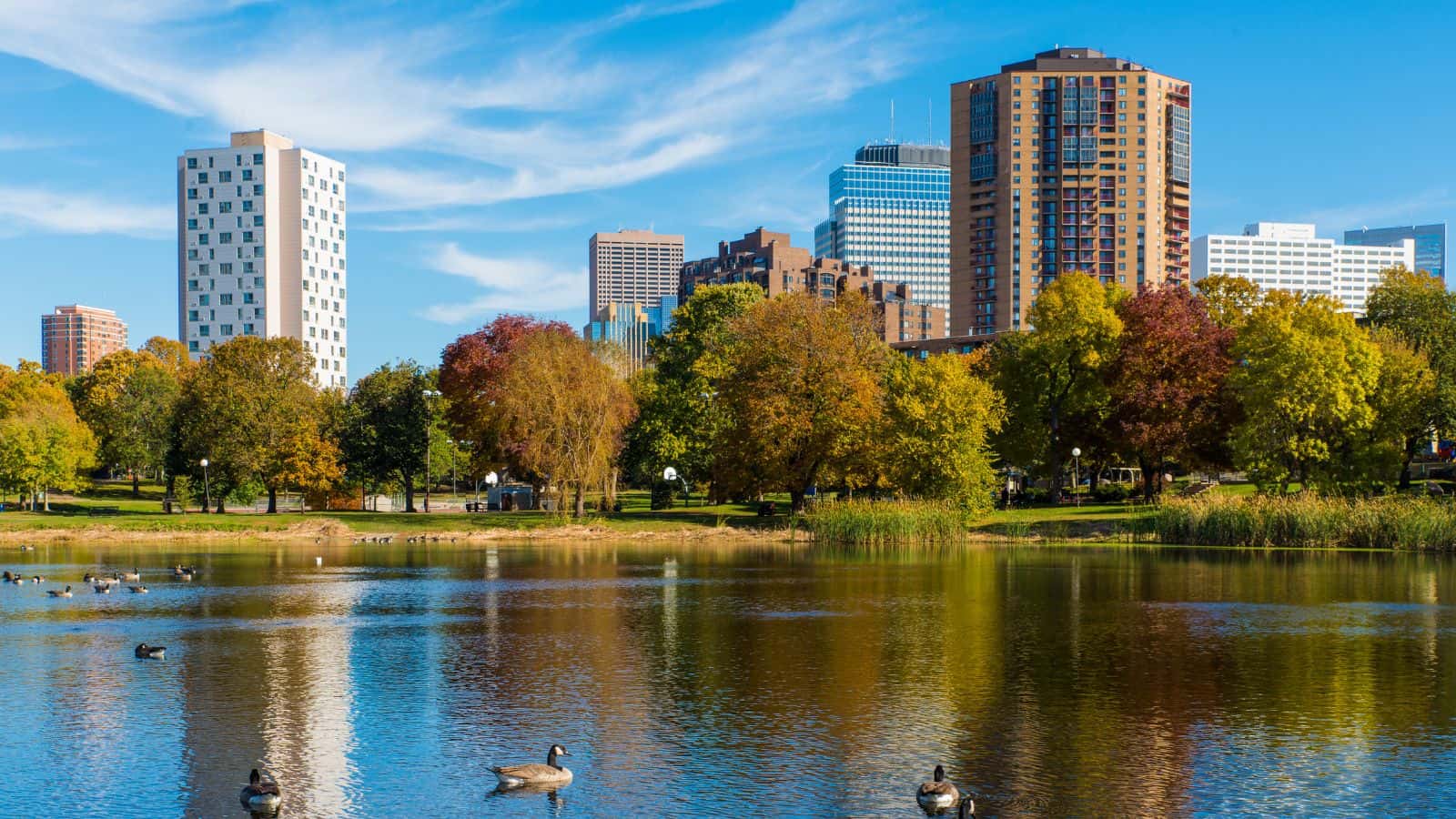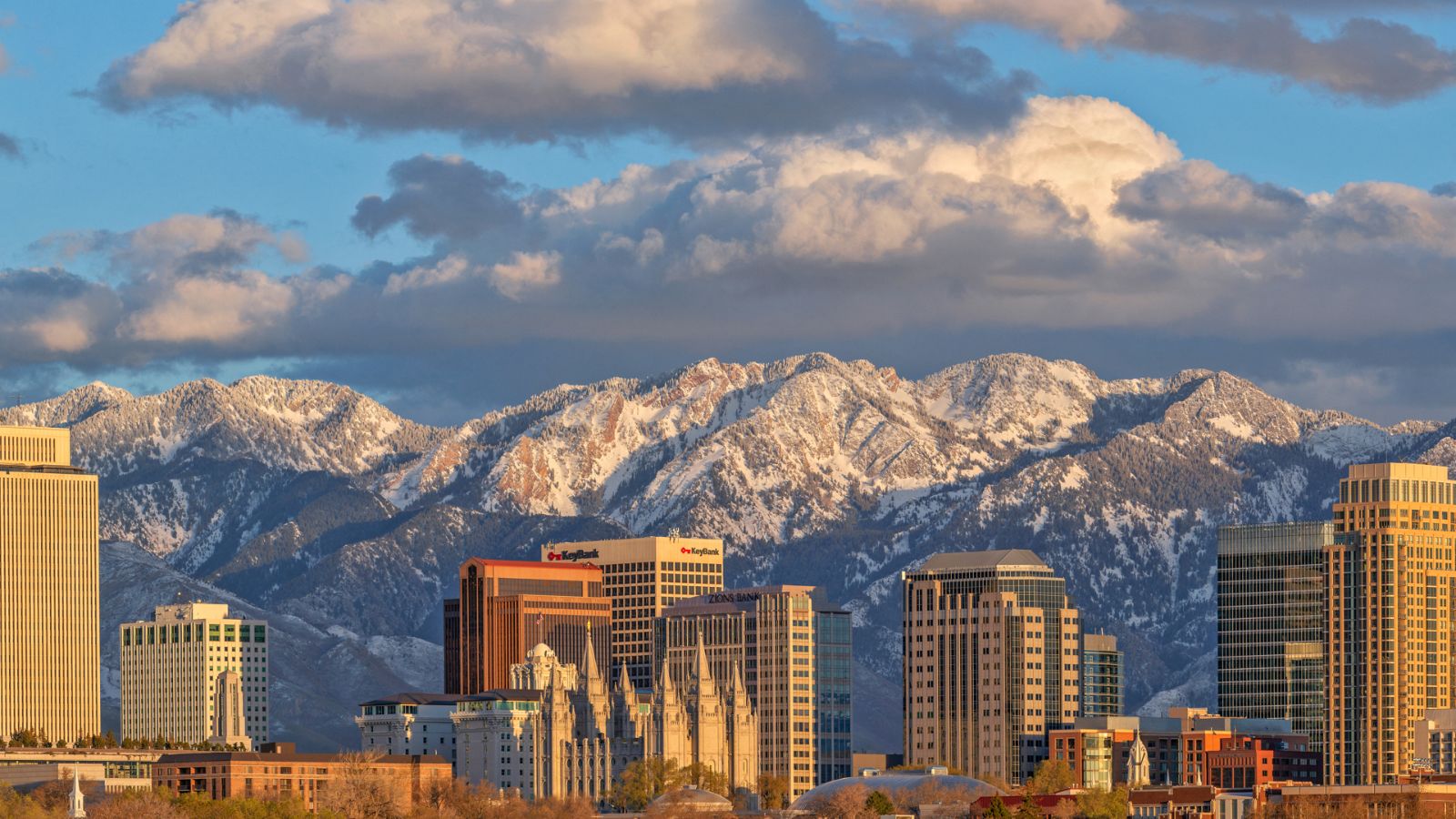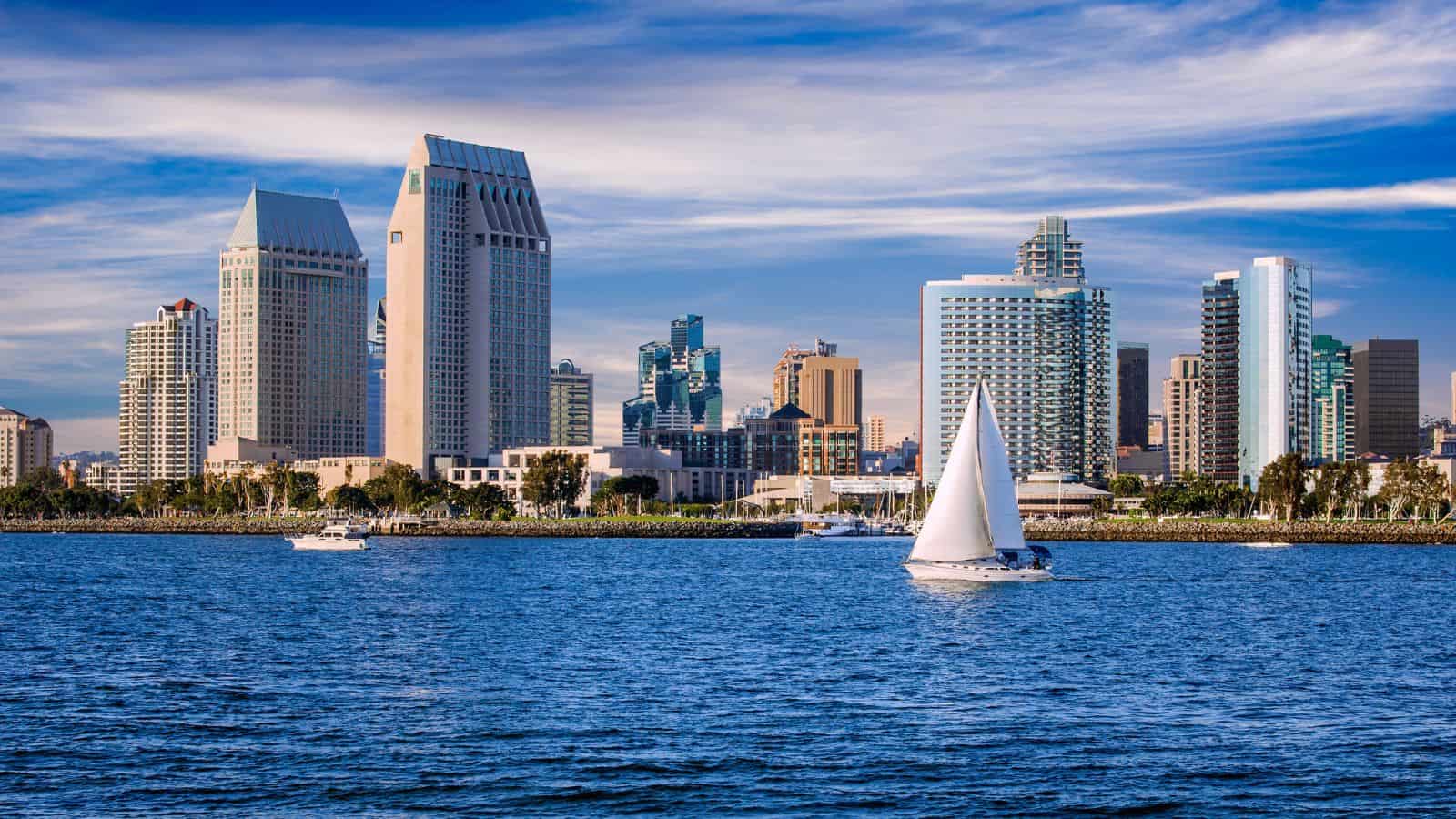Picture this—the zombies are coming, and they may be slow, but they’re undead, which means it’s only a matter of time before they reach you! So, which U.S. residents would be most likely to survive based on the city they live in? This article considers which 19 American metropolises would hypothetically provide the best defenses, most awesome weapons, and statistically greatest chance of survival should the dead suddenly rise!
Albuquerque, New Mexico

Our first choice is Albuquerque, primarily due to its military installations. Military.com states Kirtland Air Force Base is a 52,000-acre military compound surrounded by desert—presumably a great place to defend from slow-moving attackers! Nearby Sandia National Laboratories could be vital in researching zombie pathology and potentially discovering a cure.
Atlanta, Georgia

Home to the Centers for Disease Control and Prevention (CDC), Atlanta could also be invaluable in the scientific fight against the zombie virus. The New Georgia Encyclopedia says the city’s blend of urban architecture and sprawling suburban areas would provide plenty of defensible structures and resources for survival, all in a pleasant climate.
Boston, Massachusetts

Boston has a few advantageous factors: tough, stone-built historical buildings, modern medical facilities, and educational facilities (like Harvard and MIT) that may provide safe havens with adequate supplies. Boston Seaport also reports that the city is well linked by water, offering supply routes and a potential means of escape should the zombies break through!
Cheyenne, Wyoming

Cheyenne offers a strategic advantage because of its low population density, which would slow the spread of infection. The presence of F.E. Warren Air Force Base would provide weapons and other military equipment, while the city’s high altitude and rural setting might help stop the slow, clumsy zombies from attacking!
Colorado Springs, Colorado

The city’s NORAD military facility is underground, providing an almost impregnable refuge against zombies and making it one of the world’s most secure locations. The cold, mountainous terrain may also deter undead walkers, whereas the city’s renewable energy sources (wind, solar, etc.) would be helpful for long-term sustainability.
Fort Knox, Kentucky

Famous for its heavily fortified vaults and unescapable walls, the fortress-like structure would provide excellent defense. Britannica says the buildings there are virtually theft-proof, making them a great place to store food, medical supplies, and survivors! Military strategists/survivalists often cite Fort Knox as a top contender for enduring apocalypse-like conditions.
Honolulu, Hawaii

Where better to hide from marauding zombies than on an island!? Assuming the undead can’t swim or sail, Hawai’i seems like a safe choice. Plus, the island’s naval facilities provide defense, and the Pacific fleet might be useful for evacuation should the worst happen. If a long-term stay were necessary, there’d also be adequate fishing, agriculture, and water collection.
Houston, Texas

Houston Healthcare is proud of its Texas Medical Center, one of the largest medical complexes in the world, so there would be sufficient medical supplies like bandages and antibiotics. The city is also a well-known energy generator, so maintaining power throughout a siege would be possible.
Jacksonville, Florida

According to Jacksonville.com, the city has several strategic advantages—excellent transport links, including a deepwater port, multiple military bases, natural barriers (extensive waterways), good access to agricultural land, a low population density, and a high number of weapons shops and medical centers per capita. All of these would help with survival, escape, and defense.
Las Vegas, Nevada

Las Vegas’s isolated desert location makes it less accessible to wandering zombies and simpler to defend against approaching hordes. The city’s tourist infrastructure could be repurposed for survivors, and its self-contained water system, using deep aquifer wells, would ensure a reliable drinking water supply.
Minneapolis, Minnesota

Minneapolis’s cold climate might make survival tougher, but it could also be a natural deterrent to zombies approaching through snow drifts in freezing temperatures. The city’s excellent healthcare system, strong community networks, resilient infrastructure, and abundant freshwater sources would also make it a good stronghold.
Omaha, Nebraska

If the threat of a zombie plague came from outside the U.S., Omaha’s central location would make it less susceptible to coastal invasions, and its abundance of agriculture would provide long-term food sustainability. Nearby Offutt Air Force Base and a robust healthcare system would also help survivors defend themselves and treat the wounded.
Pittsburgh, Pennsylvania

Pittsburgh’s terrain of rivers and steep hills (as shown by topographic map) would provide a natural barrier against zombies. The city’s history of steel production means many industrial facilities could be repurposed for manufacturing weapons and survival equipment. Plus, it has some excellent medical facilities and research universities for fighting the virus.
Salt Lake City, Utah

Salt Lake City is isolated and naturally protected by the surrounding mountains, so it would be easy to defend and hard for zombies to infiltrate. The city has strong ‘self-reliance’ and large stockpiles of food, mainly due to the resident Mormon community’s focus on preparedness.
Plus, its water conservation systems would provide survivors with vital fresh water.
San Diego, California

There is a solid military presence in San Diego, particularly the US Navy, providing logistical and defensive advantages. The city’s coastal location offers an escape route by sea and the possibility of trade, while its biotech sector could be instrumental in researching and developing a cure for the zombie outbreak.
Seattle, Washington

Kiro-TV reported that Seattle ranks 14 out of 200 U.S. cities for surviving an apocalypse scenario. Its geographical location, surrounded by water and mountain ranges, makes it a natural fortress, and its thriving tech industry could be used for communication and surveillance to monitor the zombie threat. It also boasts impressive natural resources for survivors to rely on.
St. Louis, Missouri

The city consistently ranks poorly in desirability, yet its strategic location along the Mississippi River would be great for transportation and resource distribution. Additionally, the high crime rate and poor economy may be beneficial under apocalypse conditions—with tough, resilient, independent communities easily unified against an outside threat.
Tampa, Florida

Tampa is coastal and has access to the Gulf of Mexico, providing routes for resource import and evacuation. Multiple military bases, including MacDill Air Force Base, would be vital for defense and provide access to military expertise, equipment, and weapons. The city’s hurricane preparedness would also be useful in managing other emergencies—like zombies!
Washington, D.C.

As the nation’s capital, Washington, D.C., houses plenty of military and governmental resources, and its plethora of strongly built, historical buildings could serve as fortifications for survivors. Additionally, it has numerous scientific institutions and healthcare facilities for medical treatment and virus research.
Up Next:
18 Things You Shouldn’t Do When Your Car Breaks Down on a Road Trip
17 Things You Should Never Do When Pulled Over By The Police
